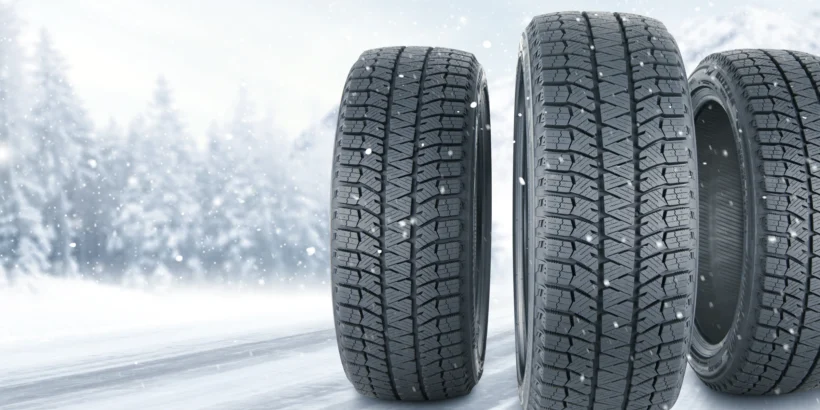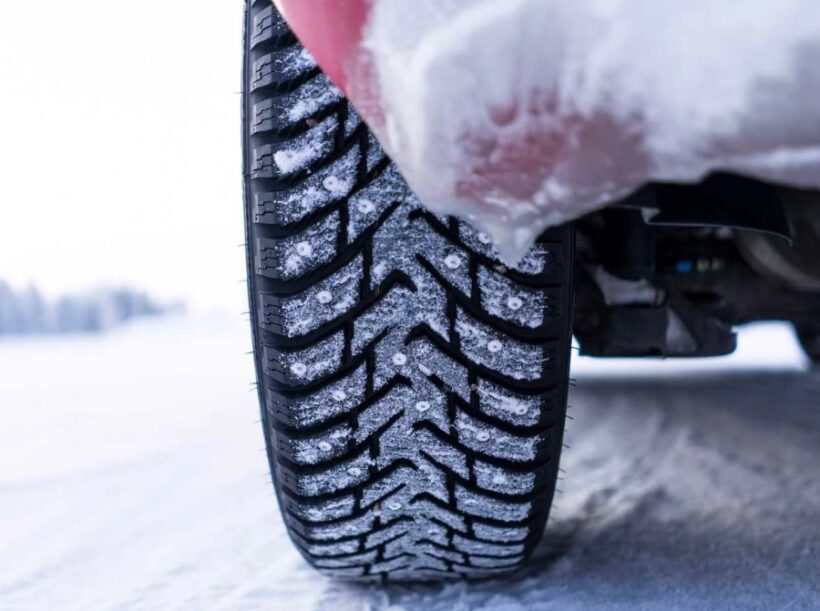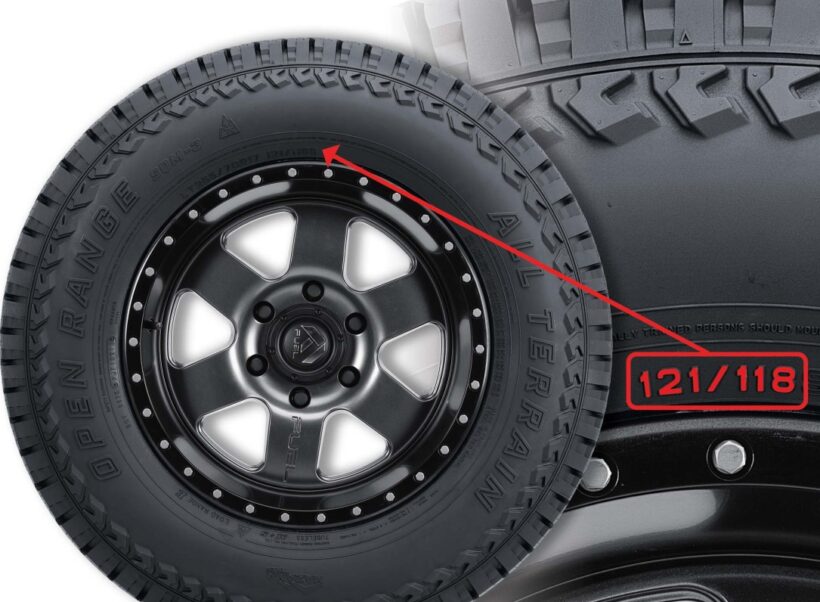Winter tires are an important investment for any driver looking to ensure safe and reliable performance on the roads during the colder months. Choosing the right winter tires for your passenger car can make a big difference in terms of traction, handling, and overall safety.
Here are some key considerations to keep in mind when choosing the best winter tires for your passenger car:

- Tread pattern – The tread pattern of a tire plays a big role in its performance in winter conditions. Winter tires typically have deep, aggressive tread patterns that can help to bite into the snow and ice and provide good traction. Look for tires with large, widely spaced tread blocks and sipes (small slits in the tread) to help improve traction on slippery roads.
- Tire type – Winter tires come in two main types: The studded and studless type. Studded tires have metal studs that serve extra traction on snow or ice, but they can also cause damage to the road surface and in some areas are illegal. Studless tires, on the other hand, rely on special tread patterns and rubber compounds to provide traction in cold and slippery conditions. Studless tires are a good option for most drivers, as they offer good traction without causing damage to the road.
- Rubber Compound – Winter tires are made with a special rubber compound that remains flexible in cold temperatures. This helps to improve traction and grip on the road, and can also help to extend the tire’s lifespan. Look for tires with a “cold weather” or “arctic” rubber compound to ensure good performance in cold temperatures.
- Load Rating – The load rating of a tire refers to the maximum weight it can safely carry. It’s important to choose tires with a load rating that is appropriate for your vehicle, as using tires with a lower load rating can lead to problems such as overheating and reduced traction. It’s important to choose winter tires with a load rating that is appropriate for your vehicle, as using tires with a lower load rating can lead to problems such as overheating and reduced traction.
In general, tires with a higher load rating are designed to carry heavier loads and are typically more durable and long-lasting. This can be especially important in winter conditions, where the additional weight of snow and ice can put extra strain on tires.
Using tires with a lower load rating than what is recommended for your vehicle can lead to a number of problems. For example, the tires may not be able to withstand the extra weight and may wear out more quickly. In addition, the tires may not provide sufficient grip and traction on the road, which can lead to reduced handling and stability.
- Price is an important consideration when choosing winter tires, but it’s important to remember that the cheapest option may not always be the best. Look for tires that offer a good balance of performance, durability, and value.
- Speed rating – The speed rating of a tire refers to the maximum speed at which it can safely be used. It’s important to choose tires with a speed rating that is appropriate for your vehicle, as using tires with a lower speed rating can lead to problems such as reduced traction and handling.
- Brand Reputation – It’s always a good idea to do some research on different tire brands and their reputations for quality and performance. Look for tires from reputable manufacturers with a history of producing reliable and high-performing winter tires. Here are the top 5 winter tire brand manufacturers for passenger cars, based on reputation and popularity:
Giti Tires: Giti is a well-known and respected brand in the tire industry, and their winter tires are highly rated for their performance and reliability.
Michelin: Michelin is another top-rated brand for winter tires, known for their high-quality construction and excellent traction in cold and slippery conditions.
Goodyear: Goodyear is a trusted and respected brand in the tire industry, and their winter tires are known for their durability and reliable performance.
Pirelli: Pirelli is a premium tire brand with a reputation for producing high-performance winter tires that offer excellent traction and handling.
Continental: Continental is a leading manufacturer of winter tires, known for their innovative designs and advanced tread patterns that provide excellent traction and handling in cold and slippery conditions.
Installation: Finally, consider the cost and convenience of having your winter tires installed. Some tire shops offer installation packages that include mounting, balancing, and disposal of your old tires, which can be a convenient and cost-effective option.
Tire Maintenance

Taking proper care is essential to ensure that you get the best performance and longevity. If you use them for more than one season, it’s important to make sure that they are in good condition before using them again. Here are some basic steps for their maintenance:
- Check the Pressure – It is essential to maintain the correct pressure, which is typically stamped on the tire itself or printed in the owner’s manual. In certain climates, cold weather causes the air in them to contract and pressure can drop quickly. Therefore, it’s important to check them in cold temperatures and adjust air pressure if necessary.
- Keep Them Clean – Make sure you regularly clean both sides of them so that snow and ice don’t accumulate when driving through snow or slushy roads. This will help reduce road noise and extend the life of them by preventing premature tread wear.
- Look For Wear Indicators– They have small raised bars between tread grooves designed as an indicator of wear; when these wear down completely, it’s time to replace them with new ones!
By considering these factors and doing some research, you can choose the best winter tires for your passenger car and ensure safe and reliable performance on the roads this winter. Remember, investing in good quality winter tires is an important part of maintaining the safety and performance of your vehicle, and can help to reduce the risk of accidents and other issues on the road.


